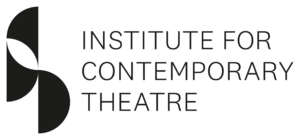The Industry Talks: Robert Cavanah
To kick off our summer of industry panel discussions, we spoke to Robert Cavanah, Producer, Writer and Actor on the trials and tribulations of becoming an actor in our ever-competitive industry.
I am also a director/writer/producer, presently developing my next feature, documentary and TV series with three different partnerships. If I want to cast actors for a role, I want not only an actor for whom the role seems tailor-made, but I want actors who NEED to act so badly, they weather the pitfalls of this difficult industry solely for the opportunities as and when they arise.
“Since 1985, when I was a young hopeful actor applying to drama schools and failing (for the first year anyway), the statistics on actors have barely changed:
- 91% of actors are unemployed at any given time
- 13% of actors earn above £20k a year
- 0.04% of actors are stars
With those statistics, who would be daft enough to consider acting as a credible career? Well, the answer to that question is – me. And if you are reading this, probably you too!
I am a working class Scot with no family ties to the industry whatsoever. But I loved storytelling, I had a high school drama teacher who believed in me – and believe me at high school I was totally cringe – and I felt that I NEEDED to act. ”
“Now, it is important that all you wannabe actors bear a difference in mind: acting is different from being an actor.
Acting is a process through which you connect with your character and synchronise your emotional realm as closely to your character’s emotional realm as you safely can, in order to give their story value, meaning and purpose, and hopefully give your audience a cathartic experience.
Being an actor is no different to being a bus driver. You are just a person who does a job. You can’t actually ‘be an actor’unless of course you are playing an actor in a show.”
“Acting is the part I love, and always have done, but being an actor often sits awkwardly alongside that because to many people ‘being an actor’ is perpetual parties, red carpet events, autographs, and the trappings of fame and fortune that appear with whitened smiles and orange faces on magazine covers.
But I remind you: 13% make above £20k a year. If you can’t handle that statistic, do something else. Money is a fortunate byproduct of acting, but it is not necessarily a constant.”
“However I will also tell you that acting has got me through times of no money better than money has got me through times of no acting. Sometimes, like during covid, I have felt bereft of work and considered the stupidity of my decision to become an actor all those years ago. What was I thinking? Why didn’t I go to law school?
How do I answer those doubts? I grab my lovely 20 year old son and take him to see a little show somewhere on the low-paid theatre circuit; a show unlikely to be packed with ‘stars’; and we watch actors who are there for one reason only, it isn’t money or fame – but to act.
Those actors remind me that my choice was worth every sacrifice, and that the work is it’s own reward, and it still is. The feeling an actor has when their research and work and instincts bring a role to life is akin to falling in love. It is a tangible moment of wonder, and when we feel it, really feel it, we embark on a lifetime’s journey to feel it again, and again, ad infinitum. ”
Creative people will find a way to remain creative in lean times.
“People who seek fame and fortune as the end goal will tire of the slog and go do something which will at the very least bring them closer to the fortune part, even if fame has to be abandoned along the way. That is all as it should be; because the industry has so few jobs available, that we only want truly committed actors fighting for each and every valuable role that comes around.
All that stuff about only the strong survive and you gotta be in it to win it, etc. Those adages were made for this game.”
I am also a director/writer/producer, presently developing my next feature, documentary and TV series with three different partnerships. If I want to cast actors for a role, I want not only an actor for whom the role seems tailor-made, but I want actors who NEED to act so badly, they weather the pitfalls of this difficult industry solely for the opportunities as and when they arise.
“The first demonstration of that need is training. The industry won’t let you in unless you demonstrate in some way that you are fit for employment. You wouldn’t give a person a job as a doctor without them having gone to med school, so why do people imagine so often that actors don’t really need to train?
Sure, there are exceptions who were in the right place at the right time when opportunity knocked at their door, but if 0.04% of actors are stars, and let’s face it, the only ones we know of who made it without training are the ones who became stars, then becoming a star is like winning the lottery.
So, set your sights on making a living and dream of stardom along the way. Or make a living doing something else whilst you pursue the acting opportunities available.”
“I have coached and taught young actors who have offered me such ‘training bypass’excuses as ‘I am really more of a practical learner’ or ‘I just don’t think training will offer me anything’ or ‘I just want to go straight into the business!’.
Yup! Really? Hmmm. That’s unique kid! Well, here’s my instant response – ALL actors are practical learners, ALL actors need training – without which their talent and passion is like water without the vessel to hold it so it runs in all sorts of messy directions – and ALL actors just wanna go straight into the business, but the business isn’t here to make billions by paying you to learn on the job.”
Netflix, Prime, Disney, the Beeb, ITV, the West End, the RSC, the National, the Donmar, the Bush, the Royal Court, Finborough or Southwark Playhouse, Leeds West Yorkshire Playhouse, the Traverse in Edinburgh, the Stephen Joseph in Scarborough, Indie film makers, studio film makers, commercials, voice-overs, game-makers and all the rest – they ALL need actors that know their stuff and who turn up on day one.
They need actors with a working methodology that allows them to read and analyse text, understand the writer’s intention for the story and their role, create a character biography, objectives, actions, animals, shadow moves and all manner of techniques to help them do something extraordinary with their character, be a good company member, understand the codes of conduct on set, and deliver a mind-blowing performance which will make everyone in the team delighted that they offered them the job.
These institutions thrive because actors bring their highly-trained A-game to the table, and the director and producer can set them off in the right general direction, then sit back and watch the magic.
The last thing a director can afford on a show like Game of Thrones where there might be a thousand extras, three camera units, a battle scene and a tiny but knockout two-hander at the centre of it all between two actors; is that one of the cast needs to be overly guided and encouraged – because they just haven’t got the time.
You are there to make their life easier, not learn your craft at their expense whilst being paid a fortune to pose on posters.”
I am staggered at how much talent is out there in aspiring actors of all ages. Truly some brilliance. In fact I dare to say there is talent in everyone. But talent needs training, then staying power.
The first test of your talent is ‘can I get into a drama school?’ I challenge you to book an audition, because if you pass the test and get a place, you are already winning.
There is still time to join ICTheatre 2022, apply now directly through us.


